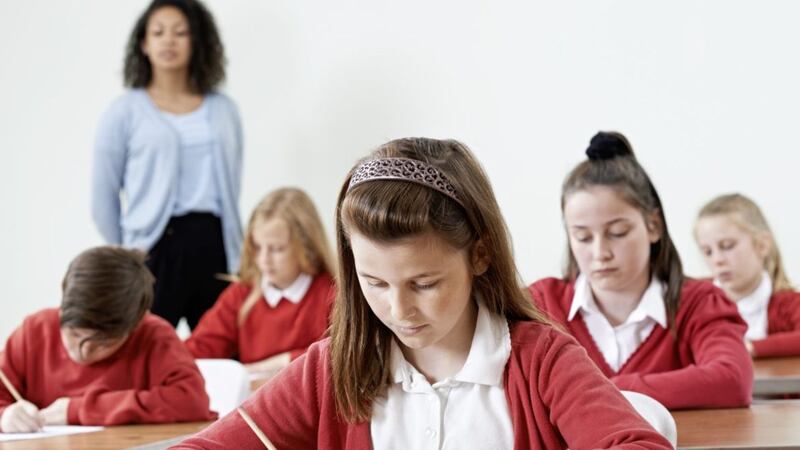PUPILS are suffering mental and emotional health troubles due to the 11-plus, a leading group of head teachers has found.
Research from the Catholic Principals Association (CPA) said children had been "bruised by academic rejection" at age 10.
Principals said there were numerous cases of primary-age children struggling with low self-esteem, stress, anxiety and depression.
Too many pupils, they said, perceived themselves as "losers in the Darwinian scramble" of selection.
The group, which represents the views of about 230 Catholic primary and secondary schools, has urged an immediate investigation into the risk to children's health posed by grammar entrance tests.
Within the Catholic sector alone, the CPA demanded authorities implement requests by Bishops to end entrance tests.
Thousands of P7s continue to sit unregulated exams every November. A majority of grammar schools have been running their own entrance tests since the last state-sponsored 11-plus was held in 2008.
Schools largely remain split into two camps using either the Common Entrance Assessment or multiple-choice papers set by GL Assessment. As many children enter both exams, this can mean taking tests on four consecutive Saturdays.
The CPA has long been an opponent of academic selection, which it said was a "damaging social, educational, moral, psychological and emotional process".
"We have highlighted mental and emotional pressures as well as stark social justice issues surrounding academic selection," the group said.
"CPA believes that very significant preventative potential lies in safeguarding and protecting children by immediate and radical reform of our school system.
"The immediate, cumulative and long-term impacts of coaching, academic selection, academic rejection and the pressures of transfer to differentiated school types are unnecessarily damaging to children."
Principals told the Irish News of their first-hand experience of the stress exerted on children taking the tests.
"This is vivid eye-witness testimony of very many primary and post-primary principals over years," the CPA added.
"Pressure, stress, anxiety and possible depression surrounding all the apparatus of selection are painfully and palpably obvious to us. We believe some suffer more obvious and some more submerged trauma and feelings of rejection.
"CPA is convinced that many of those selected are also adversely affected by the stress and strain of coaching, testing and transfer. Perceived success does not guarantee immediate or lasting relief from stress nor does subsequent placement necessarily match emotional and psychological needs."
Low self-esteem, poor self-concept and learned anxiety, the principals said, were not easily jettisoned by pupils.
"Children of 10 and 11 cannot and do not simply readjust mental and emotional equilibrium to counteract injustices and unnecessary pressures of our system.
"Selection, rejection and exclusion have lasting impact on life-chances and life-choices."








